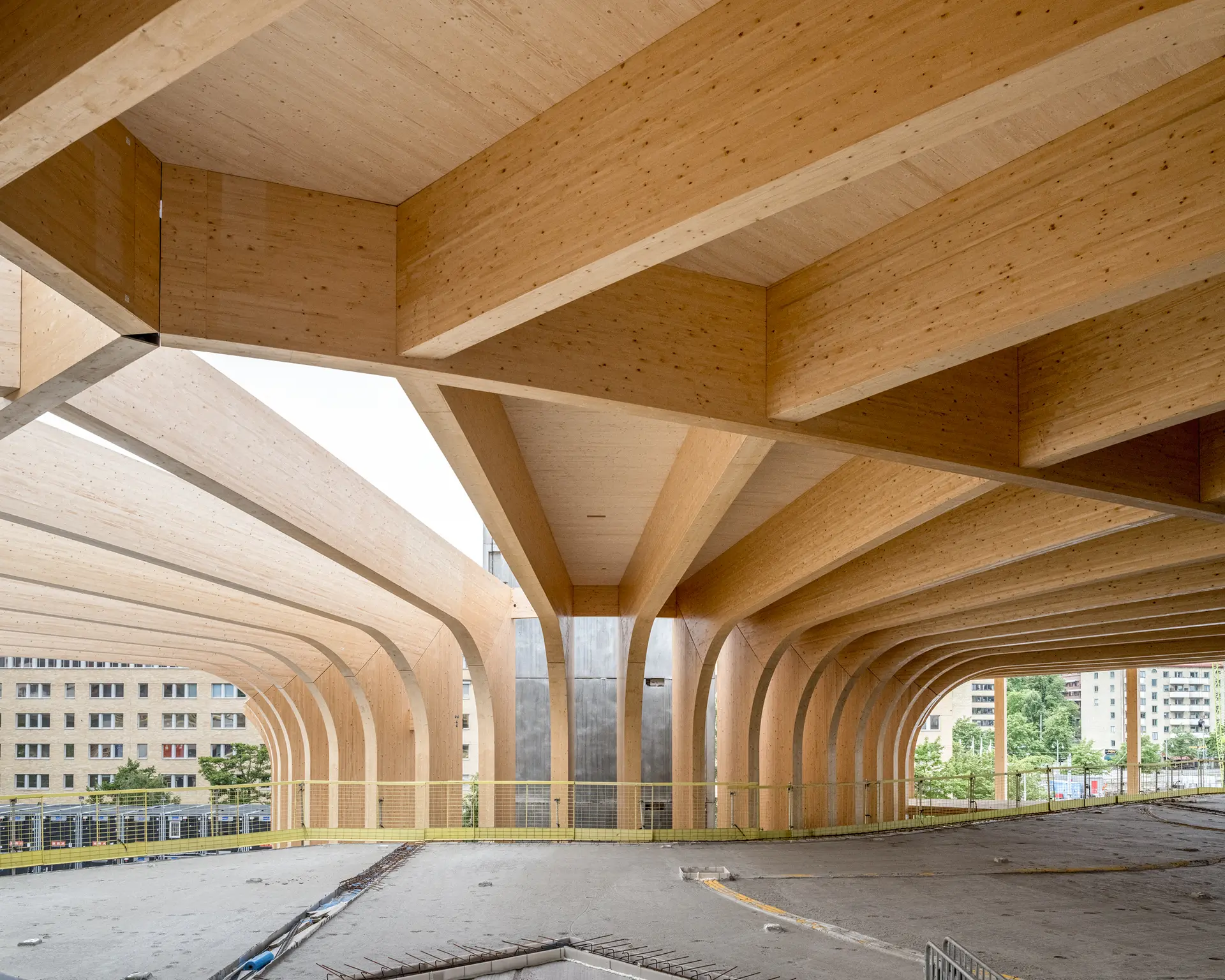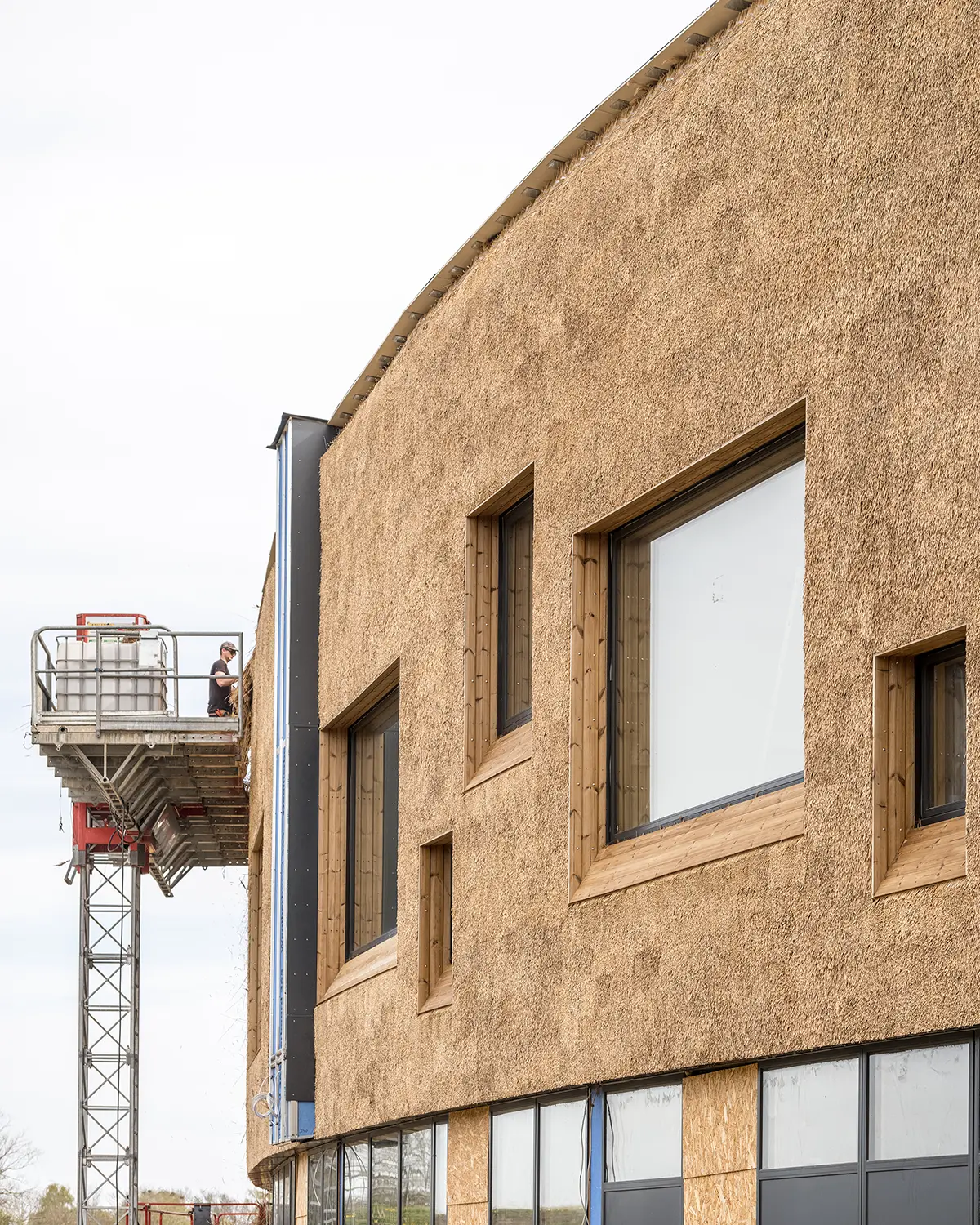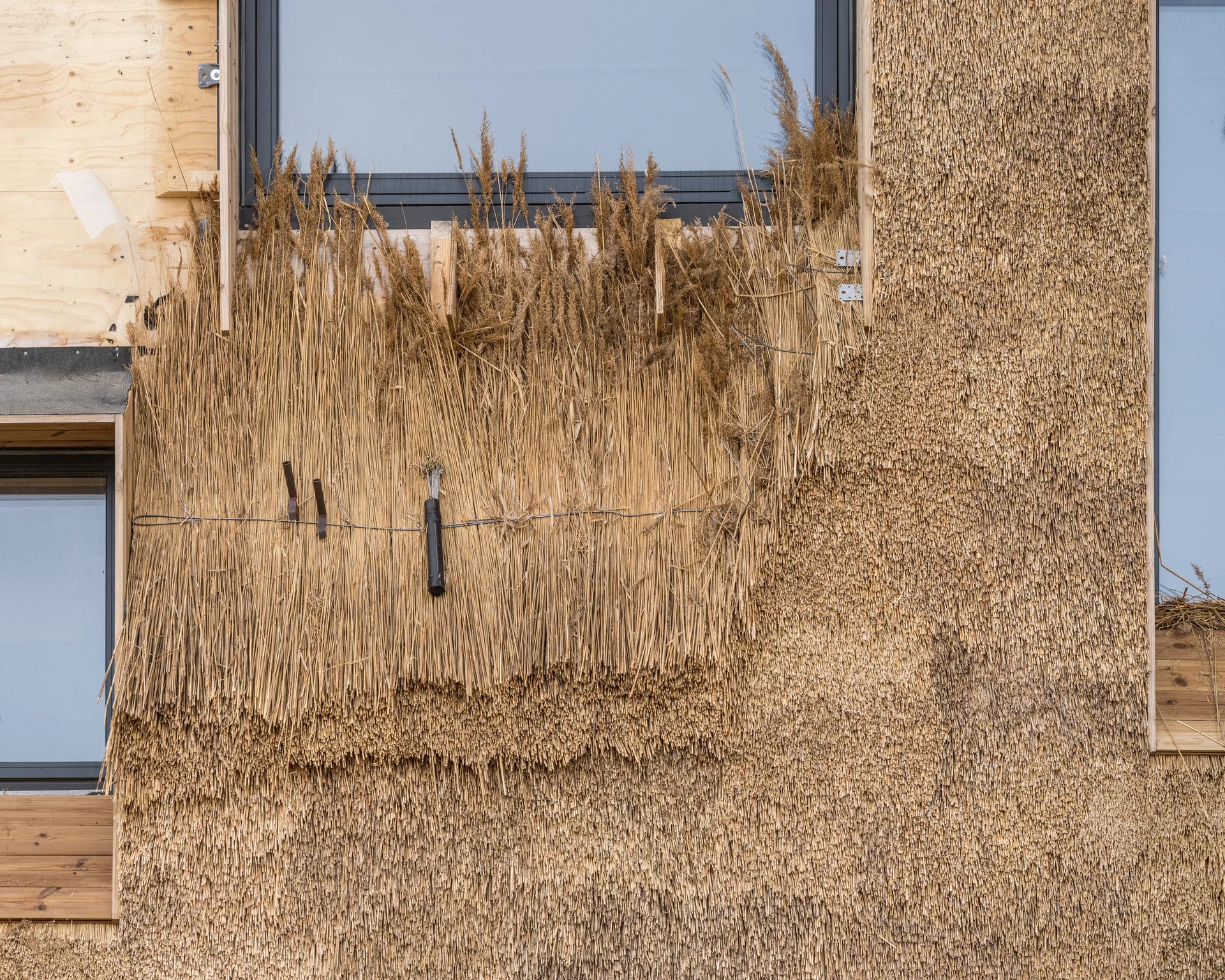Introducing Open Detail: a biogenic materials database for construction

By Zoey Kroening
There is a considerable shortage of practical insights into biogenic construction, and Open Detail is here to change that. Gathering best practices and real-world examples of viable material details, the tool has the potential to bridge the existing knowledge gap and lower the industry’s carbon footprint. To speed up the process and gain new ideas, we took Open Detail to AEC Hackathon 2024—and won!
Contact

Computational Design Architect

Lead Sustainability Architect
Various materials such as timber, reed, hemp, clay, and mycelium have shown promise in reducing the environmental consequences of construction, but despite their potential, architectural practitioners lack guidelines and knowledge on how to build with these materials and ensure buildability and durability.
Together with KEA - Københavns Erhvervsakademi, Ramboll, Speckle and Chevrant we want to foster a shift towards low-carbon architecture by making tangible biogenic design solutions easily accessible to the public and practitioners on an opensource platform.
Open Detail will be a searchable database where users can contribute and download material details in 2D or 3D formats. The tool will allow participants of all backgrounds and experience levels to enter details into the system creating a bio-based knowledge sharing hub and community. Users will be able to obtain new knowledge quickly, resulting in a faster and more efficient design process when it comes to low-carbon materials.

We’ve found new opportunities to share knowledge and ideas across industries through the AEC Hackathon series, a weekend event for collaboration between technology specialists and industry professionals in architecture, engineering, and construction.
At a recent AEC Hackathon event at Copenhagen’s BloxHub, we had the chance to collaborate with experts and innovative minds in the field of sustainability to experiment with new ideas and integrate high-end technologies in the AECO industry to expand the functionality of the platform. Exploring the event’s theme, ‘How can the AEC industries help us solve climate and biodiversity issues while ensuring a fair and just transition – through tech?’, the competing team showcased a considerably large gathering of participants and was able to achieve a major project milestone by developing a working prototype.
The effective prototype and widespread cooperation secured our computational designers a win for ‘Best Mashup Project’ at the AEC Hackathon in Copenhagen, representing a significant stride towards the actualization of Open Detail.
This is only the beginning for Open Detail, and the project is launching in 2025.
Eager to get involved? Find out more here.



